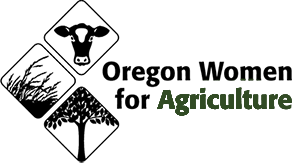l am a farmer, and it does a disservice to Oregon when news outlets publish stories like “Weed-killing chemical found in cereals, oat products, report says”. I spend considerable time trying to educate the public about modern agriculture, and articles like this do nothing but make people fear their food.
We are fortunate that Oregon is the to host the National Pesticide Information Center based at Oregon State University. It is their job to help educate the public on pesticide related issues and I encourage anyone concerned about pesticide use to check out their website and get in touch with the scientists there. When news outlets share studies from organizations such as the Environmental Working Group as referenced in the article above, it would be wonderful if they could check with NPIC before running any pesticide related articles in the future because they are a scientific, non-biased source of pesticide information.
The Environmental Working Group also releases a yearly ”Dirty Dozen” list. You’ve probably heard of it? The list lacks scientific credibility as proven by the University of California Davis research published in the Journal of Toxicity. The result is that low income people buy less fruits and vegetables for their kids because they think they are bad parents and are poisoning their children if they don’t buy organic. As you know, organic is more expensive, so consequently, they buy less. These are the real-life consequences of what reporting without fact checking accomplishes.
Did you know that farmers today produce more food while using fewer natural resources than ever before?
On our farm we use no-till as much as we can. This means we don’t plow the ground or work it between crops. This allows for increased carbon sequestration, as the organic matter gets tied up in the soil. It also improves water holding capacity, which results in less soil erosion and chemical and fertilizer runoff— therefore improving the waters of Oregon.
We use modern, improved plant varieties. This lead to more yield from fields with the same amount (or less) inputs like fertilizers and pesticides. We soil test our fields every year, and we only put on enough fertilizer for what each crop needs. We also practice IPM (Integrated Pest Management), so we only use pesticides as a last resort. We also always follow the label (which is the law), and that ensures that there will never be a pesticide residue level that should concern any consumer.
I am a supporter of all types of agriculture. In Oregon we are blessed with diverse climates which allows us to grow over 225 different crops and animals by using a wide range of farming methods. These include organic and conventional, from CSAs all the way up to family operations of multiple thousands of acres. This should be celebrated and promoted. Oregon agriculture is a good news story that should be shared. Nobody is well served by making people scared of their food.
Thank you for taking time to read this – I hope you look to fact check headlines that incite fear about your food and welcome discussion about farming practices in Oregon!
Helle Ruddenklau
Family farmer

